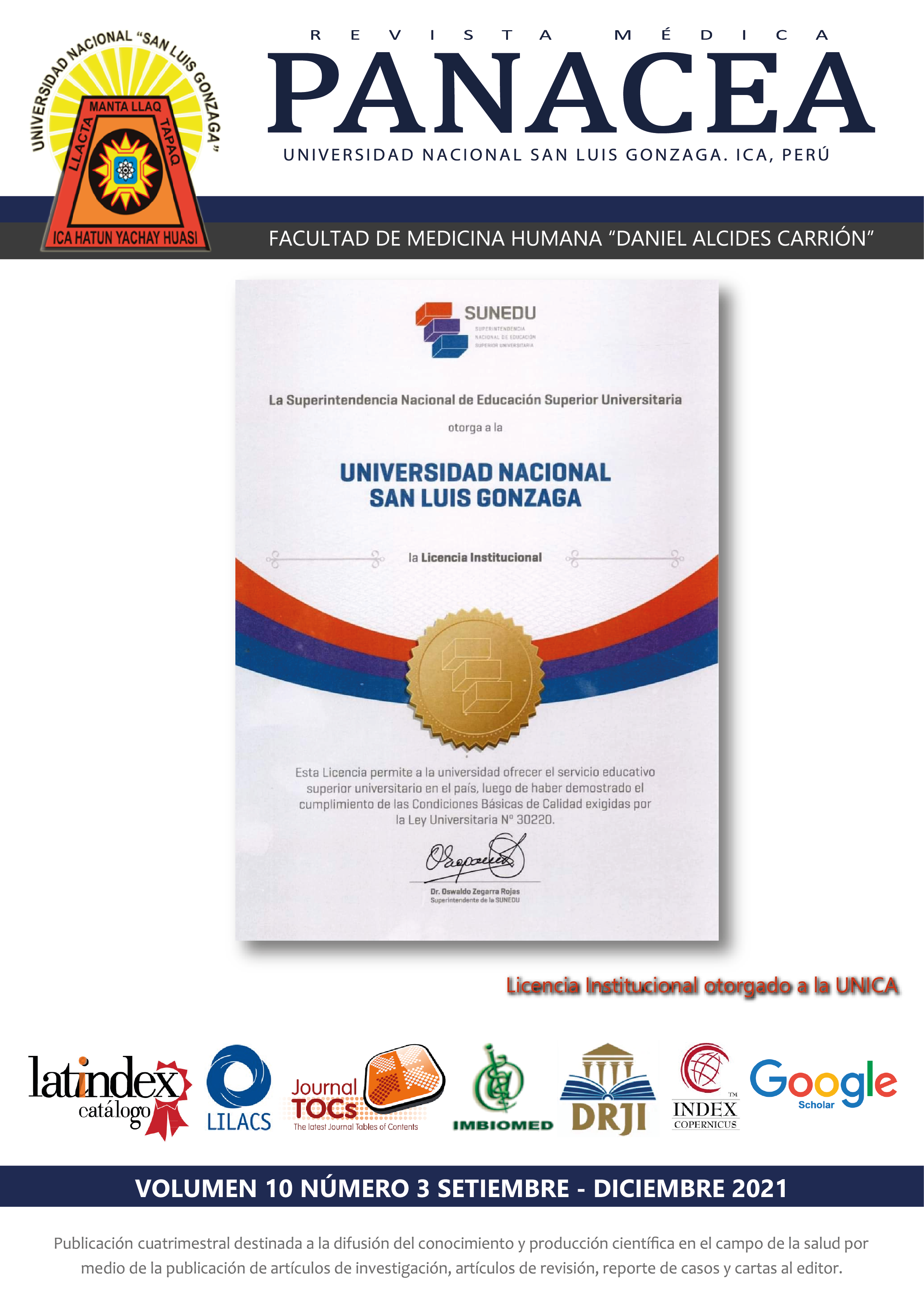ACCEPTABILITY OF THE VACCINE AGAINST COVID-19 IN ADULTS IN A REGION OF PERU
DOI:
https://doi.org/10.35563/rmp.v10i3.446Keywords:
Vacunación, inmunización, pandemias, COVID-19, PerúAbstract
Introduction: To interrupt COVID-19 transmission, efficient vaccine distribution is not enough; it is a
challenge to maintain good coverage and the willingness of the population to accept vaccination. Objective: To determine the degree of acceptability of the COVID-19 vaccine in adults in a region of Peru, and to evaluate possible associated factors. Materials and methods: Cross-sectional study, conducted in February and March 2021, 466 adults were surveyed by applying a virtual questionnaire based on a validated instrument. Results: Of the participants accepted the vaccine (70,6 %); 43.8% were male; 78,1% had higher education; 53,4% considered the vaccine to be effective; 65,7% did not believe it could cause serious adverse effects; they would recommend its administration (65,9%). The main reason for refusal was that they would expect another type of vaccine (39,4%); the main source of information was the Internet (49,4%); and the vaccine causes them low level of anxiety (67,8%). Conclusions: It was found that the degree of acceptability of the vaccine is not optimal; it was found that vaccine acceptance was associated with male gender, 60 years of age or older, considering that the vaccine is effective, that it does not have serious adverse effects, and recommending the vaccine. It is pertinent to provide sufficient information to the population regarding the importance of vaccination.
Downloads
Published
Issue
Section
License
Copyright (c) 2022 JENY DEL RIO-MENDOZA, BLADIMIR BECERRA-CANALES, UBALDO MIRANDA-SOBERON

This work is licensed under a Creative Commons Attribution 4.0 International License.
Copyright is retained by the authors, who have the right to share, copy, distribute, perform, and publicly communicate their article, or parts of it, provided that the original publication in the journal is acknowledged.
Authors may archive in the repository of their institution:
- The thesis from which the published article derives.
- The pre-print version: version prior to peer review.
- The post-print version: final version after peer review.
- The final version or final version created by the editor for publication.


